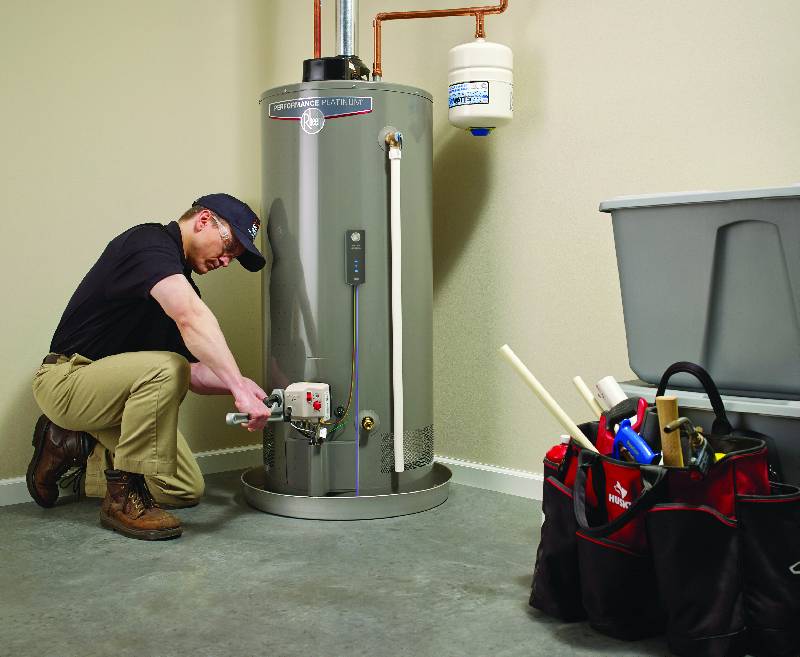Addressing Regular Water Heater Difficulties
Addressing Regular Water Heater Difficulties
Blog Article
Were you in search of advise around Water Heater Repair and Troubleshooting?

Visualize beginning your day without your routine hot shower. That currently sets a bad tone for the remainder of your day.
Every house requires a trustworthy water heater, however only a few recognize how to handle one. One very easy way to keep your hot water heater in leading shape is to look for faults consistently and also repair them as soon as they appear.
Keep in mind to shut off your hot water heater prior to smelling around for faults. These are the water heater faults you are most likely to run into.
Water also warm or also cool
Every hot water heater has a thermostat that determines how warm the water obtains. If the water entering into your residence is too warm regardless of establishing a practical optimum temperature, your thermostat might be faulty.
On the other hand, also cold water might result from a stopped working thermostat, a broken circuit, or incorrect gas flow. As an example, if you use a gas water heater with a busted pilot burner, you would obtain cold water, even if the thermostat is in perfect problem. For electric heating systems, a blown fuse may be the culprit.
Not nearly enough hot water
Hot water heater been available in several sizes, relying on your hot water demands. If you lack hot water prior to everyone has actually had a bathroom, your water heater is as well tiny for your family size. You should think about mounting a larger water heater storage tank or going with a tankless water heater, which uses up much less room and also is more resilient.
Unusual noises
There are at least five sort of noises you can hear from a water heater, yet one of the most usual analysis is that it's time for the water heater to retire.
First of all, you need to know with the typical sounds a water heater makes. An electric heating unit may sound various from a gas-powered one.
Popping or banging sounds generally indicate there is a piece of debris in your containers, as well as it's time to cleanse it out. On the other hand, whistling or hissing sounds may simply be your valves allowing some stress off.
Water leakages
Leakages might originate from pipelines, water links, valves, or in the worst-case scenario, the tank itself. With time, water will wear away the storage tank, and also find its escape. If this happens, you require to change your water heater asap.
However, before your adjustment your entire tank, make sure that all pipelines remain in area and that each valve works perfectly. If you still need assistance determining a leakage, call your plumber.
Rust-colored water
Rust-colored water means one of your water heater components is corroded. It could be the anode rod, or the storage tank itself. Your plumber will have the ability to recognize which it is.
Warm water
Despite exactly how high you established the thermostat, you will not obtain any type of warm water out of a heating unit well past its prime. A hot water heater's performance might minimize with time.
You will also obtain warm water if your pipelines have a cross link. This indicates that when you switch on a tap, warm water from the heating unit moves in together with regular, cold water. A cross link is simple to spot. If your warm water faucets still pursue closing the water heater shutoffs, you have a cross connection.
Discoloured Water
Corrosion is a major reason for unclean or discoloured water. Rust within the water tank or a stopping working anode rod might create this discolouration. The anode rod shields the storage tank from rusting on the within and must be checked yearly. Without a rod or an appropriately functioning anode rod, the warm water promptly wears away inside the tank. Contact a specialist hot water heater professional to identify if changing the anode pole will certainly fix the trouble; if not, replace your water heater.
Conclusion
Preferably, your hot water heater can last 10 years before you need a modification. Nonetheless, after the 10-year mark, you may experience any of these faults much more on a regular basis. Now, you need to add a brand-new hot water heater to your budget plan.
How To Troubleshoot 3 Common Water Heater Problems in Twin Cities
The Water Heater Is Leaking
A leaky cold water inlet valve A loose pipe fitting A leaky temperature and pressure relief valve A corroded anode rod A cracked tank Turn Off Your Water Heater:
Shut off your gas water heater by turning the gas valve on the unit to the “OFF” position. Shut off your electric water by switching its power off at your electrical panel. Look for a two-pole breaker labeled “water heater” and turn it to the “OFF” position. Move the ball valve connected to the water heater to be perpendicular to the piping at a 90° angle. Look for the Leak:
Depending on whether the water is coming from the tank's top or bottom, you’ll want to look for the leak in different locations.
If the leak comes from the top of the tank, carefully look for water escaping from the cold water inlet valve or loose pipe fittings. Rusted hot and cold water valves can have loose connections with the tank, with water leaking out of them.
https://mspplumbingheatingair.com/blog/how-to-troubleshoot-3-common-water-heater-problems
Do you really like reading about Common Problems with Your Home Water Heater? Create a remark further down. We'd be delighted to hear your views about this entry. Hoping that you come back again in the future. Are you aware of another person who is truly interested in the subject? Please feel free to promote it. Thanks for your time. Kindly check our website back soon.
Go Company Report this page